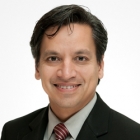You are here
Integration of Genetics, Developmental Biology, and Regenerative Medicine for Human Disease
Speakers
Abstract
Heart disease is a leading cause of death in adults and children. We have revealed complex signaling, transcriptional and translational networks that guide early differentiation of cardiac progenitors and later morphogenetic events during cardiogenesis. By leveraging these networks, we have reprogrammed disease-specific human cells in order to model genetically defined human heart disease in patients carrying mutations in cardiac developmental genes. These studies revealed mechanisms of haploinsufficiency and more recently the contribution of genetic variants inherited in an oligogenic fashion in heart disease. Integration of large-scale DNA-sequencing in patients with CRISPR and single cell technologies are revealing complex inheritance patterns for human disease. We also utilized a combination of major cardiac developmental regulatory factors to induce direct reprogramming of resident cardiac fibroblasts into cardiomyocyte-like cells with global gene expression and electrical activity similar to cardiomyocytes, and now have revealed the epigenetic mechanisms underlying the cell fate switch. Most recently, we identified an approach to unlock the cell cycle in adult cardiomyocytes by introducing fetal cyclins and cyclin dependent kinases, and have been able to induce resident, post-mitotic cardiomyocytes to undergo cell division efficiently enough to regenerate damaged myocardium. Knowledge regarding the early steps of cardiac differentiation in vivo has led to effective strategies to generate necessary cardiac cell types for disease-modeling and regenerative approaches, and may lead to new strategies for human heart disease.


